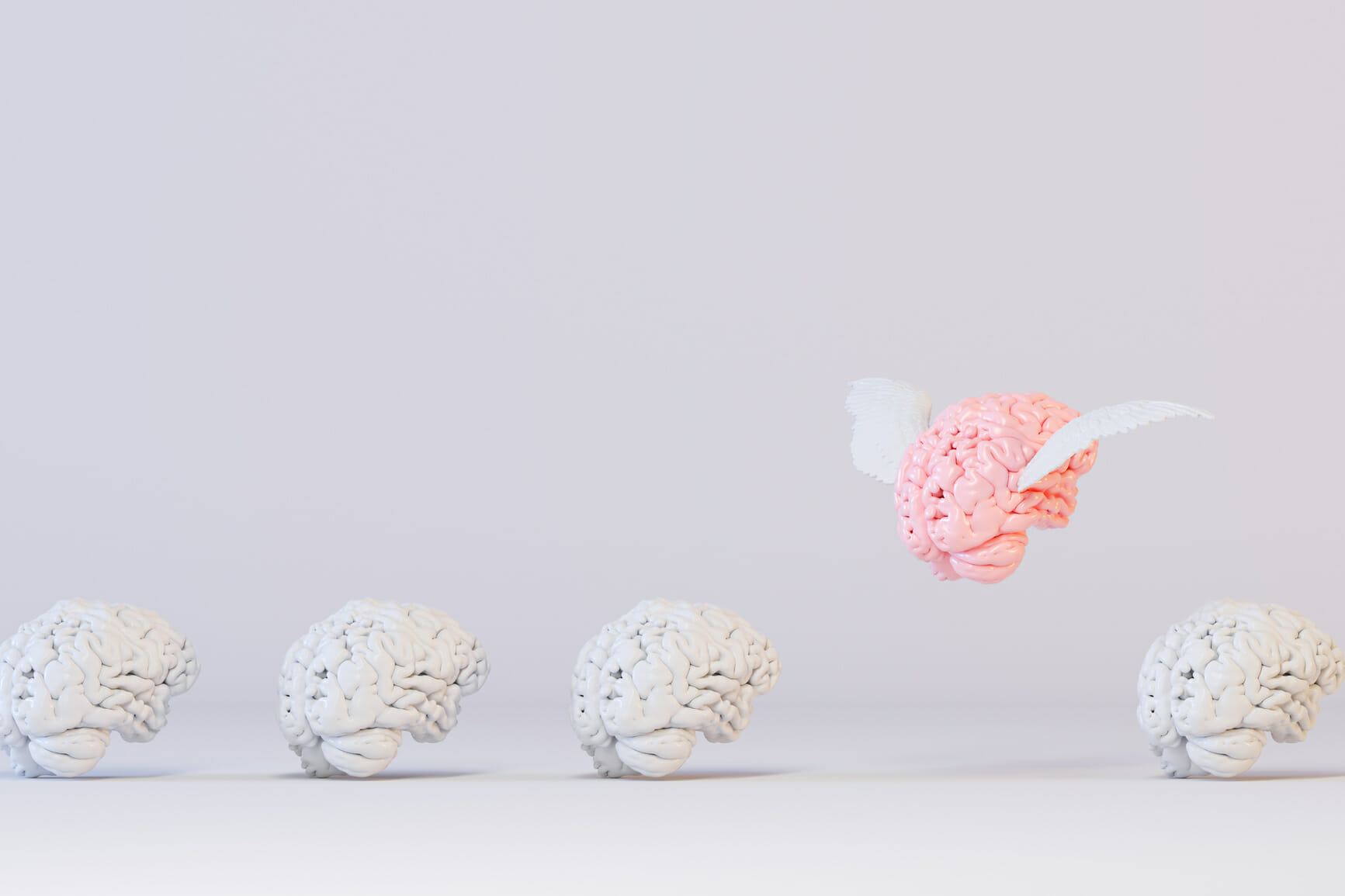Do you believe everything you think? You shouldn’t!
Our brains are wired to make connections. This helps it to work fast and efficiently. But our brains don’t get it right every time. We have to be aware of what we’re thinking because it’s too easy for our brains to make assumptions or twist thoughts to help them fit a certain narrative that it’s created.
Go through the list of thinking errors below. Make note of the ones you catch yourself doing most often. Start becoming aware of your twisted thinking and stop trusting what your brain automatically comes up with. Then, use the exercise below to help untwist these thinking errors to form more helpful, truer, and more positive thoughts.
17 Common Thinking Errors
1. All or Nothing Thinking
- Right/Wrong Thinking; Black/White; Good/Bad; Absolute or Extreme Categories
- Desire for perfection
- Can leave us feeling trapped, helpless, or lack choices and compromise
Examples:
“I completely failed my interview.”
“He’s disgusting.”
2. Magnification/Minimization
- Overstating/Understating; Unfair Comparison; Blow Things out of Proportion or Shrink Importance; Worst-case Scenarios; Predictions
Examples:
“How can I ever trust him again if he lied to me?” (Magnification)
“I just told a little lie that didn’t matter anyway.” (Minimization)
3. Overgeneralization
- Thinking always/never; Conclusions based on one piece of negative evidence; Global assumptions/Assuming the worst; Never-ending patterns of defeat
Examples:
“I’ll never be able to forgive her.”
“He’s always doing that.”
4. Discounting the Positive
- Positives don’t matter; Doesn’t accept positives; Finding excuses to turn positive into negative
Examples:
“Who cares if I got the job, they’ll fire me when they find out I’m not that smart.”
“Yes, but she only did it once, I seriously doubt she’ll do it again.”
5. Negative Mental Filter
- Seeing only the negative; Focus on the negative; Filters out positives
Examples:
“Focusing on the B your son got on her report card rather than the 5 A’s”
“I have to do everything around the house.”
6. Labeling
- Unkind names of self/others; Assigning judgment; Exaggerated opinions
Examples:
“I’m a horrible person.”
“I didn’t realize you were so stupid.”
7. Blame/Self Blame
- Blaming self/others; Playing the victim; Holding others responsible; Others-blame is external, self-blame is internal
Examples:
“It’s all your fault that I got fired.”
“How am I supposed to be nice when he’s always doing that to me?”
8. Heaven’s Reward Fallacy
- Expecting something, then feeling resentment when you don’t get it.
Examples:
“I deserved that promotion, not him.”
“Why should I when she never acknowledges what I do?”
9. Hopelessness
- Feeling like your problems will never be solved
Examples:
“No one is ever going to love me.”
“What’s the use, why bother trying to change now.”
10. Emotional Reasoning
- I feel it, therefore it’s true; Emotions accepted as fact; Incorrect assumptions based on feelings
Examples:
“I feel like an idiot, so I must be one.”
“It feels like he’s doing it on purpose and I know he is.”
11. Should Statements
- Heavy demands; criticism of self/others; Expectations
- Includes Should, Shouldn’t, Must, Ought, and Have To
Examples:
“You should have told me that.”
“He knows me; he should have known what to do.”
12. Fallacy of Fairness
- Life should be fair, just, and equal
- Leads to anger, resentment, and bitterness
Examples:
“It’s not fair he makes more money than me when I have a harder job.”
“I feel justified in acting like this.”
13. Mind Reading
- Know what others are thinking; Judgments; Conclusion Without Evidence; Reading Others Thoughts, Making Assumptions
Examples:
“He thinks I’m blowing this out of proportion and is going to break up with me.”
“She thinks I’m crazy.”
14. Fortune Telling
- Make conclusions/predictions without evidence; What-if statements; Catastrophizing; Predicting with certainty
Examples:
“The vacation is going to be ruined because I know it’s going to rain.”
“What if they never change?”
15. Always Being Right
- Internalize opinions and will put others on trial to prove their opinions/actions are correct; Will go to great lengths; Needs to be right
Examples:
“That’s not the way that I would do it.”
“Your interpretation is so wrong, that’s not what happened.”
16. Fallacy of Change
- Expecting other people to change to suit you; Pressure others to change
- Happiness is dependent on the person changing
Examples:
“If only he would just be cleaner, then I wouldn’t get so upset.”
“Why should I if they aren’t?”
17. Control Fallacies
- Internal: Has control over self, others, and surroundings; Feels responsible
- External: Life is controlled by other factors, Feeling of having no control
Examples:
“I feel terrible that I tutored him and he failed the test; it’s my fault.” (Internal)
“What use will it be, she’ll just leave me anyway.” (External)
Exercise:
It’s not easy to recognize that our thoughts are twisted and skewed. We’ve been taught to go with whatever our initial thought and feeling is. Plus, it’s easier and it feels so true! But remember, feelings are facts and thoughts aren’t completely true. We use a lens all the time through which we interpret our circumstances.
Pause and run through this 4-part exercise to practice noticing your thinking errors and learning to untwist them.
- Grab the Thought: Write down what you’re currently thinking.
- Analyze the Thought: Notice and write down any thinking errors about those thoughts.
- Replace the Thought: Write down some other thoughts you could choose to think instead.
- Choose the Thought: Decide what thought you are going to choose to think and write it down.
Did you decide to choose your original thought even though you came up with some alternatives? Why or why not?
Was it easy to notice any thinking errors? Ask a trusted person to help you out with this if you get stuck.
Could you come up with several other thoughts instead of your initial thought? Again, ask someone to help you if this is difficult at first. It will get easier.
Practice doing this 4-step thought exercise to begin choosing and thinking less twisted thinking! Then, notice it creates different feelings, better connections with others, and more positive experiences.


